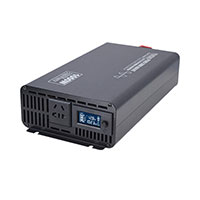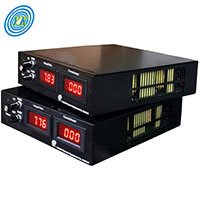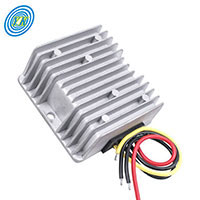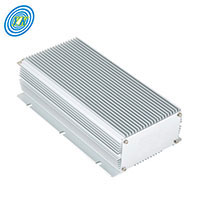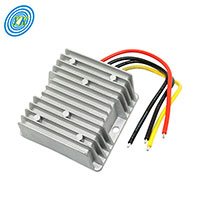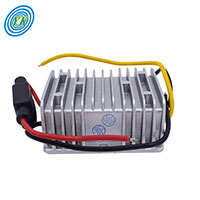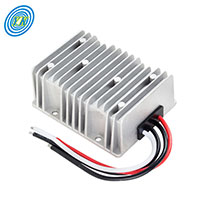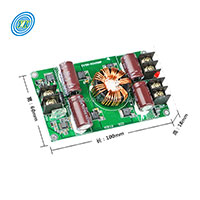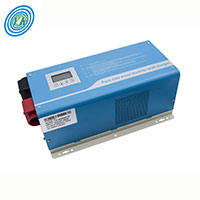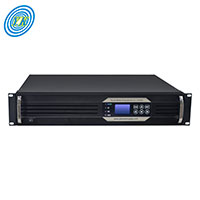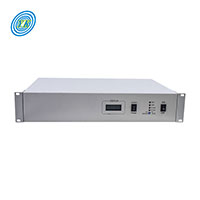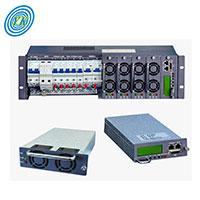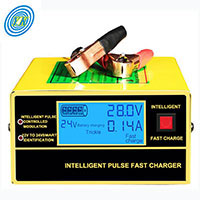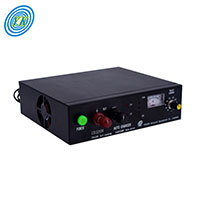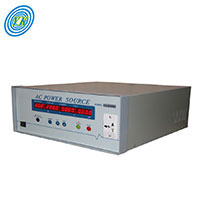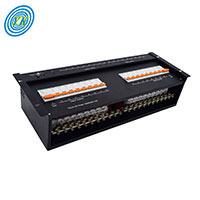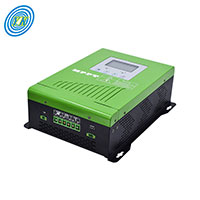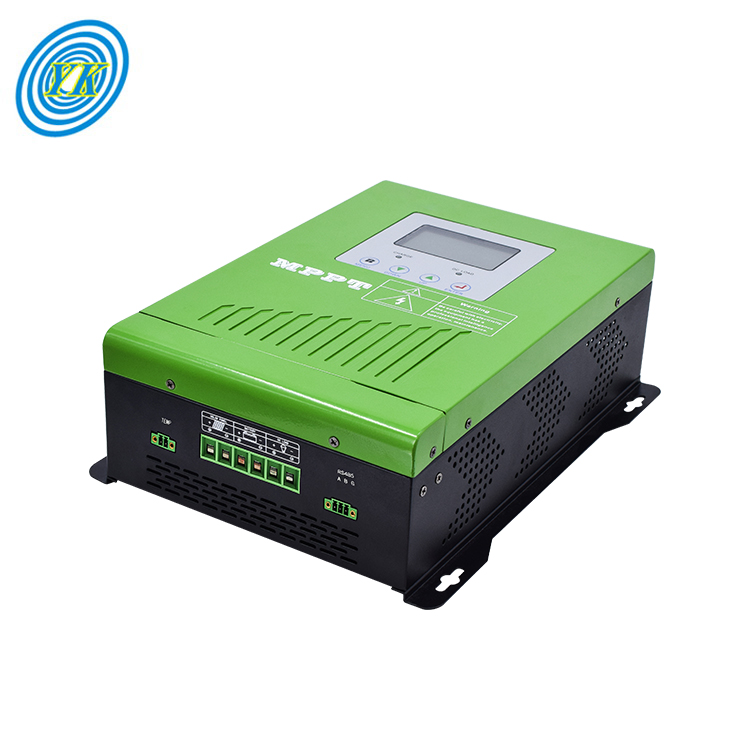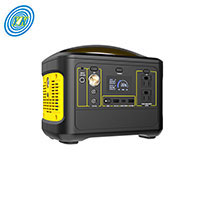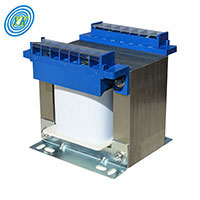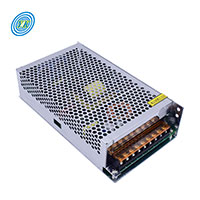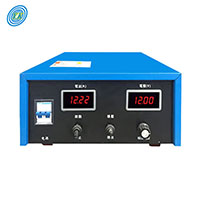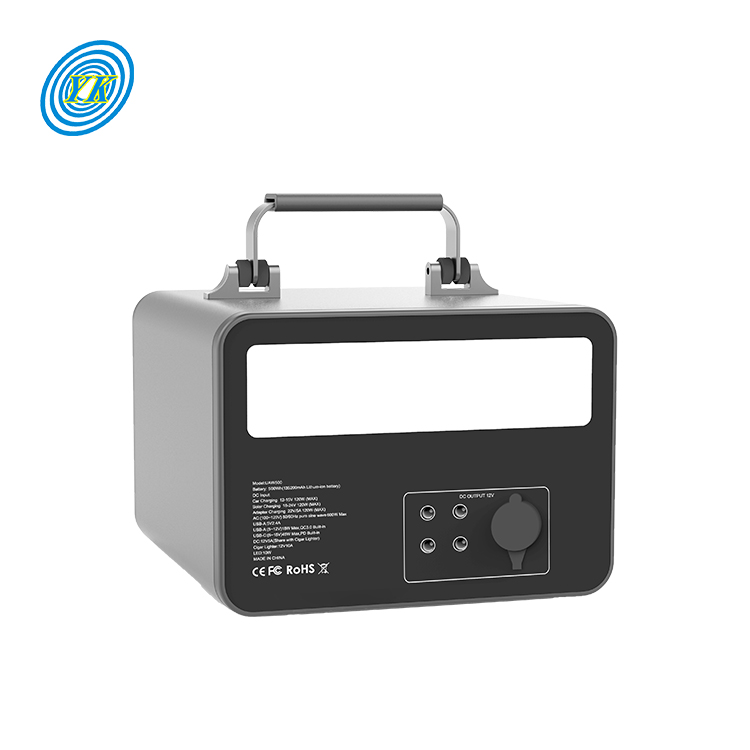
Different models of YUCOO’s portable power stations and their capacities
Click: 0 Date: 08/24/2023 3::58::52 PM
YUCOO offers a variety of portable power stations with different capacities to cater to a range of power needs. Here are some of the notable models:250W Portable Power Station: This model is compact and lightweight, making it ideal for outdoor activities like camping, hiking, or fishing. Despite its small size, it can power a range of devices including laptops, smartphones, drones, and small appliances. The power station features three charging methods, a built-in UPS function, and an aluminum alloy shell for enhanced durability.500W Portable Power Station: This power station offers a higher capacity than the 250W model, making it suitable for powering larger devices or multiple smaller devices simultaneously. Like the 250W model, it also features three charging methods, a built-in UPS function, and an aluminum alloy shell.1000W Portable Power Station: This is one of YUCOO's most powerful portable power stations. It is capable of powering large devices such as refrigerators, large televisions, and power tools. This model is ideal for RV trips, outdoor events, or as a backup power source for households during power outages.Please visit the official YUCOO website or contact their customer service for more detailed information about each model, including their specific capacities, features, and prices.
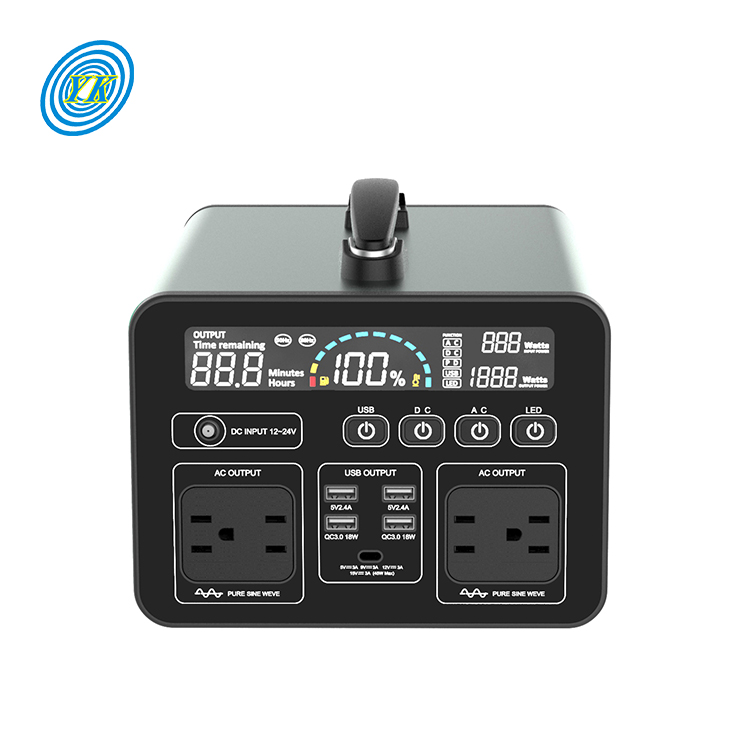
Technology used in YUCOO’s portable power stations
Click: 0 Date: 08/24/2023 3::52::27 PM
YUCOO's portable power stations use a combination of technologies to deliver efficient and reliable power supply:High-Frequency Inverter Technology: This technology converts DC power into AC power, which is suitable for most electronic devices. High-frequency inverters are generally lighter and more compact compared to low-frequency inverters, making them ideal for portable power stations.Portable Lithium Battery Technology: YUCOO power stations use portable lithium batteries, which are known for their high energy density and long life span. These batteries significantly reduce the weight and volume of the power station, making it more portable.Built-in UPS Function: The UPS (Uninterruptible Power Supply) function ensures that the power station can provide power continuously, even when the main power source is interrupted. This is particularly useful during power outages.Multiple Charging Methods: YUCOO power stations can be charged in three ways: mains charging, solar charging, and vehicle charging. This flexibility allows users to recharge the power station in various situations.Aluminum Alloy Shell: The power stations are housed in an aluminum alloy shell, which is resistant to high temperatures. This enhances the durability of the power station, especially in outdoor environments.Protective Features: YUCOO power stations feature short-circuit and over-current protection. These safety measures prevent damage to the power station and connected devices in case of electrical faults.All YUCOO products undergo rigorous testing by national certification bodies, ensuring their quality and reliability
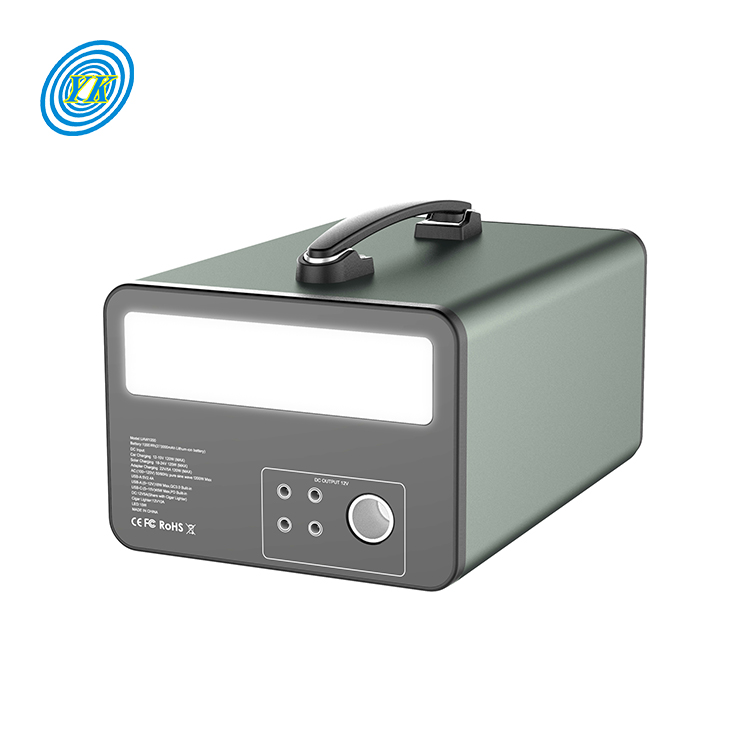
YUCOO: Powering the Future with Portable Power Stations
Click: 824 Date: 08/24/2023 3::16::15 PM
YUCOO: Powering the Future with Portable Power StationsFor over two decades, YUCOO, a reputable power supply manufacturer, has been pioneering the development of high-quality power supply solutions. One of the key products that stand out in their portfolio is the Portable Power Station. These devices are designed to provide reliable, renewable energy on the go, making them an indispensable asset for outdoor enthusiasts, emergency preparedness, and remote work situations.What Is a Portable Power Station?A portable power station is essentially a large, rechargeable battery that can be taken anywhere. It is designed to power a range of electronic devices and appliances, from smartphones and laptops to fans, lights, and even some heavy-duty equipment. The capacity of a portable power station is measured in watt-hours (Wh), which indicates how long a device with a certain wattage can be powered by the station.YUCOO Portable Power StationsYUCOO's portable power stations stand out in the market due to their advanced technology, robust build, and user-friendly features. They come in different capacities, allowing users to choose a product that best suits their power needs.One of the noteworthy models is the 250W Portable Power Station. It comes with a built-in inverter technology, UPS function, and three charging methods: mains charging, solar charging, and vehicle charging. The device also features an aluminum alloy shell for high-temperature resistance, making it a durable choice for outdoor use.YUCOO power stations also offer a range of protective features, including short-circuit and over-current protection. Moreover, every product undergoes rigorous testing by national certification bodies to guarantee quality.Why Choose YUCOO?Choosing YUCOO's portable power stations comes with a host of benefits:Advanced Technology: YUCOO utilizes high-frequency inverter technology and portable lithium battery technology, which significantly reduces the volume and weight of the product.Versatility: With AC and DC outputs, YUCOO's portable power stations can power a wide range of devices. Some models also come with LED lighting for added convenience.Durability: The power stations feature an aluminum alloy shell for enhanced durability, even in high-temperature conditions.Reliability: All YUCOO products undergo rigorous testing by national certification bodies, ensuring their quality and reliability.For over 20 years, YUCOO has been committed to providing reliable and efficient power solutions. Their portable power stations are a testament to their dedication to quality and innovation. Whether you're planning an outdoor adventure, preparing for potential power outages, or setting up a remote workplace, YUCOO has a portable power station to meet your needs.
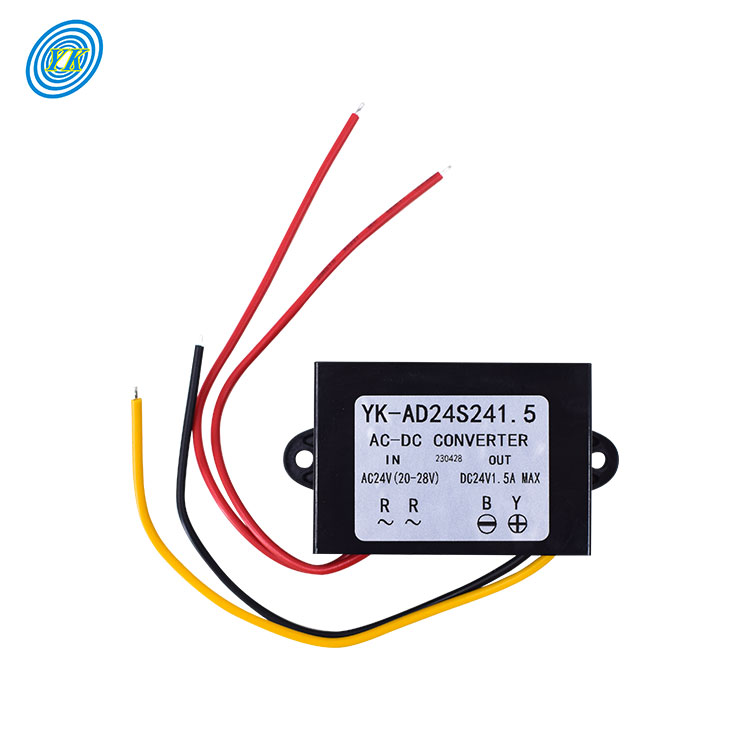
AC to DC Converters: Powering the Modern World Efficiently and Reliably
Click: 0 Date: 08/24/2023 2::56::21 PM
AC to DC Converters: Powering the Modern World Efficiently and ReliablyIntroduction: AC to DC converters play a vital role in today's world by efficiently converting alternating current (AC) power into direct current (DC) power. These converters enable the smooth operation of a wide range of electronic devices and power supply systems. In this article, we will explore the benefits and applications of AC to DC converters, with a specific focus on the industry-leading company, Yucoo, and their innovative product offerings.Benefits of AC to DC Converters:Powering Electronic Devices: AC to DC converters serve as the bridge between AC power sources, such as electrical grids or generators, and the DC power required by electronic devices including smartphones, laptops, and household appliances. By converting AC power to DC power, these converters ensure efficient and reliable operation of electronic devices.Charging Batteries: With the increasing prevalence of battery-powered devices and renewable energy systems, AC to DC converters play a crucial role in charging and managing battery systems. Yucoo's advanced AC to DC converters facilitate efficient charging of batteries used in electric vehicles, solar power systems, and other applications.Flexibility and Adaptability: AC to DC converters offer flexibility in converting different voltages based on the specific requirements of electronic devices and systems. This adaptability allows for seamless integration of power sources and ensures optimal performance of the connected devices.Energy Efficiency: Modern AC to DC converters, such as Yucoo's cutting-edge products, incorporate advanced technologies like switch mode power supplies (SMPS) to provide high efficiency power conversion. They minimize power loss, reduce energy consumption, and contribute to a greener and more sustainable world.Applications of AC to DC Converters:Consumer Electronics: From smartphones and tablets to gaming consoles and televisions, AC to DC converters are found in a wide range of consumer electronics. These converters provide the necessary DC power to ensure proper functioning and charging of these devices.Industrial Automation: In industrial settings, AC to DC converters are integral components of control systems, power distribution units, and motor drives. They help power various automation components, ensuring smooth operation and precise control in manufacturing processes.Renewable Energy Systems: AC to DC converters, specifically inverters, are instrumental in renewable energy systems such as solar panels and wind turbines. They convert the DC power generated by these sources into AC power suitable for grid integration or powering off-grid applications.Electric Vehicle Charging: As the demand for electric vehicles continues to rise, AC to DC converters are essential for charging stations. Yucoo's advanced converters offer efficient and reliable charging solutions for electric vehicles, facilitating the transition to a greener transportation ecosystem.Yucoo: Powering Innovation and EfficiencyThe company Yucoo has been a leading manufacturer of high-quality power supplies for over 20 years. With a focus on technological advancements and customer satisfaction, Yucoo has consistently delivered cutting-edge AC to DC converters that meet the industry's demands.Yucoo's extensive range of AC to DC converters boasts exceptional reliability, efficiency, and stability. From compact wall adapters and desktop power supplies to industrial-grade power modules, Yucoo offers a diverse portfolio to cater to various applications and power requirements.In addition to their outstanding product quality, Yucoo prioritizes customer support, providing technical assistance and customized solutions. With a commitment to innovation and a customer-centric approach, Yucoo has become a trusted name in the power supply industry.AC to DC converters are essential devices that enable the efficient conversion of AC power to DC power, powering a wide range of electronic devices and systems. With numerous benefits and applications, these converters have become an indispensable part of our modern world.Yucoo, with its decades of experience and commitment to excellence, is at the forefront of AC to DC converter technology. Their high-quality products and dedication to customer satisfaction make them a preferred choice for businesses and individuals seeking reliable and efficient power solutions.By leveraging the expertise and innovative offerings of companies like Yucoo, we can ensure the seamless operation of electronic devices, the growth of renewable energy systems, and a more sustainable future.
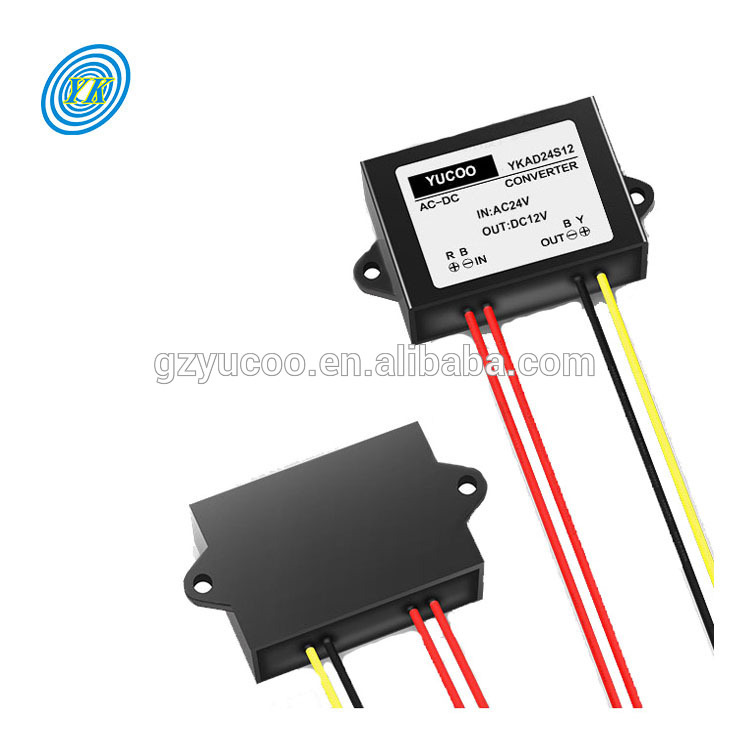
Advantages of Using AC to DC Converters
Click: 756 Date: 08/24/2023 2::51::18 PM
Advantages of Using AC to DC ConvertersAC to DC converters offer several advantages in various applications. Here are some key advantages:Powering Electronic Devices: Most electronic devices, such as cell phones, tablets, and laptops, operate on DC power. AC to DC converters provide the necessary conversion to ensure these devices receive the appropriate power input. This allows for seamless operation and charging of electronic devices.Charging Batteries: Batteries, especially those used in electric vehicles and solar power systems, store energy in the form of DC power. AC to DC converters play a crucial role in effectively charging these batteries by converting AC power to DC power. This enables efficient energy storage for later use.Wide Range of Applications: AC to DC converters are used in a wide range of electronics and electrical devices. They serve as power supply circuits for household appliances like vacuum cleaners, washing machines, and refrigerators. Additionally, they are essential for operating electronics sensors and modules, medical equipment, factory automation, building automation, process control systems, and telecommunication devices.Renewable Energy Systems: In renewable energy systems like solar panels, the generated power is usually in the form of DC. AC to DC converters, known as inverters, are used to convert this DC power to AC power for use in the electrical grid or household applications. This enables the integration of renewable energy sources into the existing power infrastructure.Efficient and Reliable Power Conversion: Modern AC to DC converters, such as switch mode power supplies, offer high efficiency and reduced power consumption. They provide a stable and reliable power supply to electrical devices, ensuring their proper functioning and protection. AC to DC converters can also convert different voltages based on the rectifier, allowing for flexibility in power conversion.It is important to note that while AC to DC converters offer numerous advantages, there are also some limitations to consider, such as limited power supply and the need for proper research to select the most suitable converter for specific applications. However, with careful consideration and selection, AC to DC converters can provide efficient and reliable power conversion for a wide range of devices and systems.
Click: 686 Date: 08/24/2023 2::43::46 PM
Types of AC to DC ConvertersThere are several types of AC to DC converters, each designed for specific applications and functionalities. Here are some common types:Diode Rectifiers: Diode rectifiers are the most basic type of AC to DC converter. They convert AC input voltage into a fixed DC voltage. They are commonly used in electric traction, electrochemical processes, battery charging, power supply, welding, and UPS systems.Phase Controlled Rectifiers: Phase controlled rectifiers, also known as line commutated AC to DC converters, convert a fixed value of AC signal voltage into a variable DC voltage. They operate by controlling the firing angle of thyristors. Phase controlled rectifiers find applications in DC drives, HVDC systems, compensators, metallurgical and chemical industries, and excitation systems for synchronous machines.Inverters: Inverters are AC to DC converters that convert a fixed DC voltage into a variable AC voltage. They are commonly used in induction motor and synchronous motor drives, UPS systems, aircraft and space power supplies, high voltage DC transmission systems, induction heating supplies, and low-power systems like flashlight discharge systems in photography cameras.Cycloconverters: Cycloconverters are devices that convert a fixed voltage and frequency AC supply into a variable voltage and frequency AC output. They are mainly used in slow-speed large AC traction drives, rotary kilns, and multi MW AC motor drives.AC Voltage Controllers: AC voltage controllers, also known as AC voltage regulators, convert a fixed AC voltage into a variable AC voltage of the same frequency. They use thyristors in an antiparallel arrangement and control the output voltage by changing the firing angle delay. AC voltage controllers find applications in lighting control, electronic tap changers, and speed control of large fans and pumps.AC to DC converters are widely used in various industries and applications. They play a crucial role in powering electronic devices and ensuring reliable and efficient operation
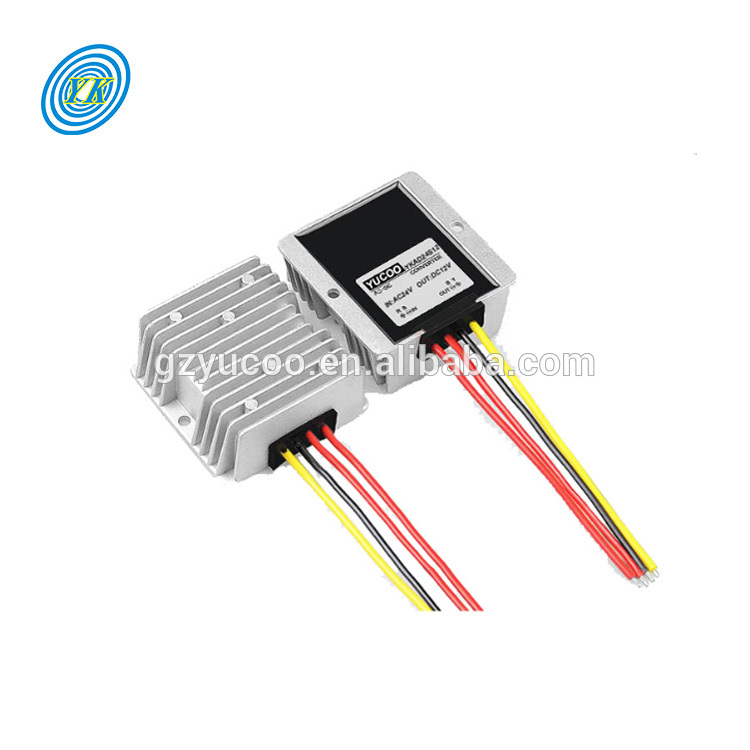
Effect of conversion process on efficiency in AC to DC converters
Click: 714 Date: 08/24/2023 2::31::51 PM
The efficiency of AC to DC converters can be influenced by various factors related to the conversion process. Here are some key aspects to consider:Topology and Design: The choice of converter topology and design can impact efficiency. Advanced topologies, such as active clamp flyback (ACF) topology, can improve efficiency by reusing energy that would have been dissipated in a passive clamp snubber resistor. These topologies can achieve reduced switching losses and enhanced electromagnetic interference (EMI).Source Resistance: Source resistance, including wiring, connectors, and trace layout, can affect converter efficiency. Setting the supply voltage too close to the output voltage may increase costs and limit the performance of the system, potentially leading to lower efficiency.Conversion Process Optimization: Optimizing the conversion process itself can improve efficiency. This involves carefully selecting components, minimizing losses, and reducing heat dissipation. Techniques such as zero-voltage switching (ZVS) or zero-current switching (ZCS) can be employed to reduce switching losses and improve overall efficiency.Control and Regulation: Efficient control and regulation of the converter can contribute to higher efficiency. Implementing advanced control algorithms and feedback systems can help maintain stable output voltage and reduce losses.Component Selection: Choosing high-quality components with low resistance and low power losses can significantly impact efficiency. This includes selecting appropriate transformers, diodes, capacitors, and MOSFETs, among other components.Thermal Management: Proper thermal management is crucial for maintaining high efficiency. Adequate heat sinking, thermal design, and cooling mechanisms help dissipate heat effectively and prevent component overheating, which can negatively affect efficiency.Power Factor Correction (PFC): Incorporating power factor correction techniques can improve efficiency by reducing reactive power and optimizing the power factor of the converter. This is particularly important for high-power applications to comply with energy efficiency regulations and minimize power wastage.By considering these factors and implementing appropriate design, control, and optimization techniques, the efficiency of AC to DC converters can be improved. It's important to note that the specific impact of each factor may vary depending on the converter topology, application requirements, and other design considerations. Conducting detailed analysis, simulations, and testing can help in optimizing efficiency for a particular AC to DC converter design.
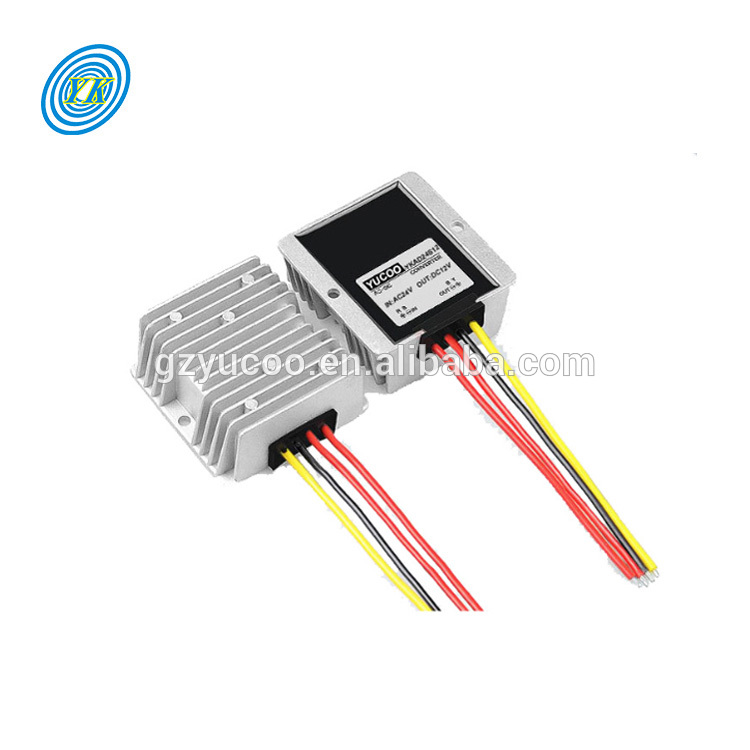
Key considerations when selecting AC to DC converter for specific application
Click: 725 Date: 08/24/2023 2::27::41 PM
When selecting an AC to DC converter for a specific application, there are several key considerations to keep in mind. These considerations can help ensure that the converter meets the power requirements and specifications of the application. Here are some important factors to consider:Use Case for the Converter: Determine the specific application or use case for the converter. Different applications may have different power requirements, so it's important to know exactly what you need the converter for before making a purchase. Consider whether your application requires a UL Listed vs UL recognized power supply, for example.Voltage Requirements: Consider the voltage requirements of your application. Determine the amount of voltage needed for the electrical current to power your devices or system. Small electronic devices like laptops and smartphones typically operate on low-voltage currents (usually between three and twelve volts), while industrial applications may require more powerful voltages. Medical equipment, for example, may require specific safety ratings, so it's important to seek out a specialized medical power supply.Amperage Requirements: Consider the amperage requirements of your application. Amperage refers to the amount of current flowing through the circuit. Determine the amount of current needed to power your devices or system. This information will help you select a converter that can provide the required current output.Size: Consider the size of the converter. If you have limited space, make sure to choose a converter that will fit into the allotted space. This will help avoid the need for returns or exchanges due to size constraints.Efficiency Rating: Consider the efficiency rating of the converter. Efficiency refers to how much power is wasted as heat during the conversion process. Choosing a converter with a higher efficiency rating can help reduce energy waste and save on costs.Warranty: Consider the warranty provided with the converter. A warranty can protect your investment in case of unit failure. It's important to review the warranty terms and conditions before making a purchase.These considerations will help guide you in selecting an AC to DC converter that is best suited for your specific application. It's also recommended to work with an experienced power supply company that can provide guidance and support in the selection process. By considering these factors and seeking expert advice, you can ensure that the AC to DC converter meets the requirements of your application and delivers reliable and efficient power conversion.
